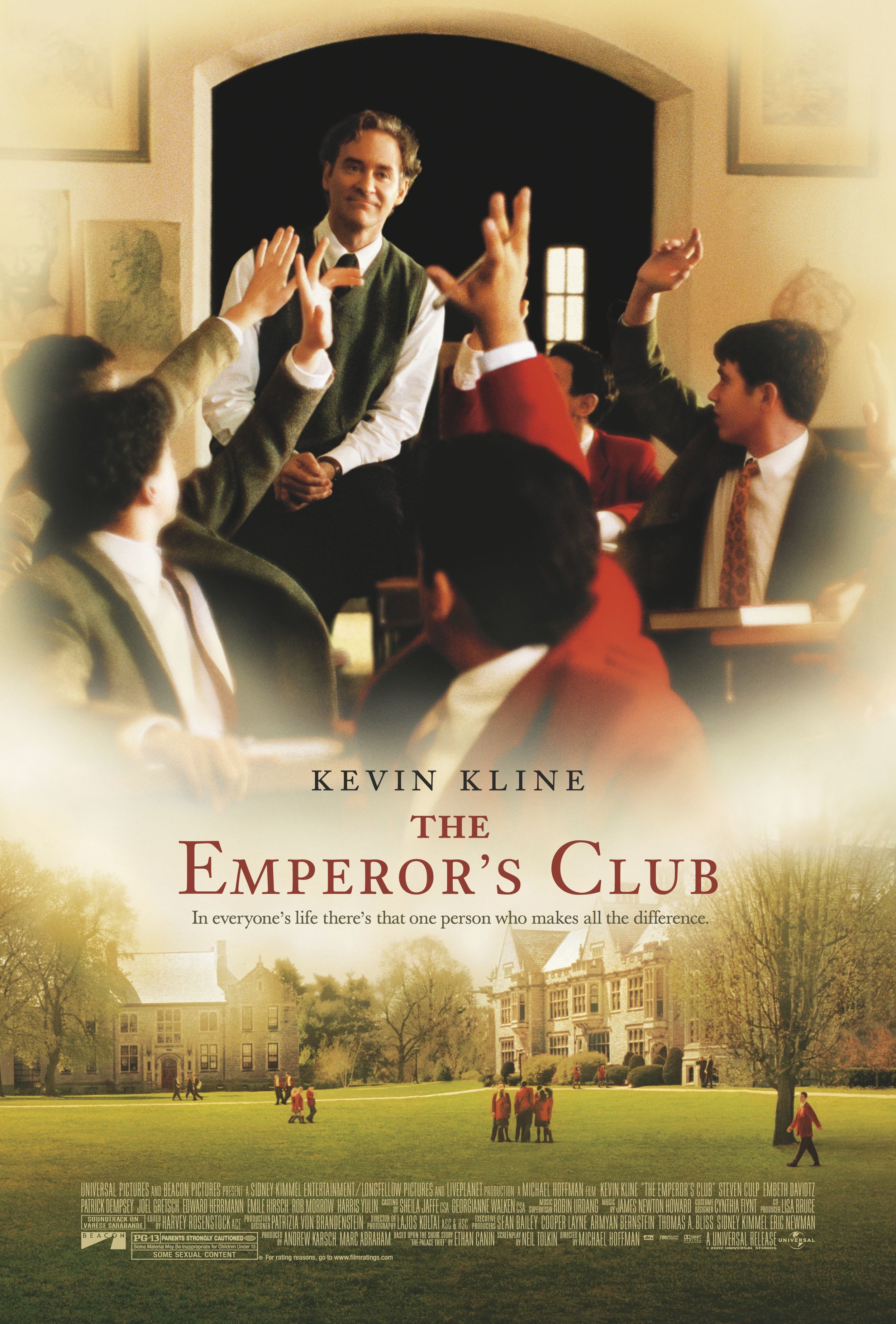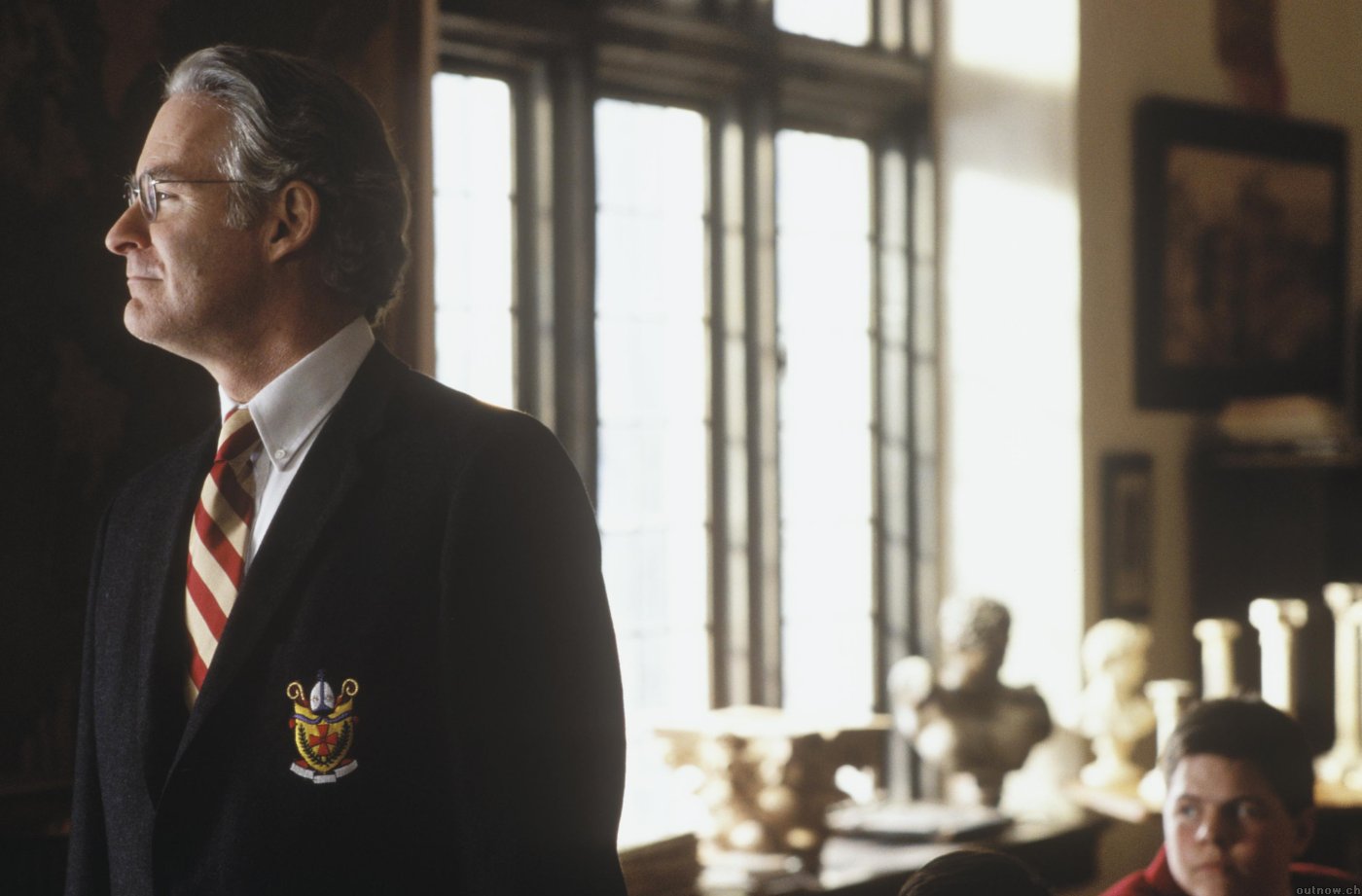Summary
An aging teacher of Classics at a boarding school is given the opportunity to see how he affected the lives of his students when one of them organizes a reunion weekend.
Context
I’ve always loved teachers and movies about teachers. I had wonderful teachers growing up, some of my best friends are teachers, and many of the people I most highly regard are teachers.
It is a profession for which I have the highest respect. There are many films which I like, despite their not being particularly spectacular or well made, that I suspect I love simply because teaching plays such a large role in them.
This is one of those films. In fact, I’d go so far as to say that this film is my “Dead Poets Society.”
The Film
This film is told from the perspective of Mr. Hundert (Kevin Kline, “Wild Wild West”). He teaches Classics at an all boys boarding school. In fact, he is such a highly esteemed member of the faculty that he is Assistant Headmaster and will most likely take over for the Headmaster when he retires.
The film begins as a new school year does, with Mr. Hundert meeting his new students and teaching the first lessons of the Greeks and Romans. Some short time into the semester, a new student, Sedgewick Bell (Emile Hirsch, “Into the Wild”), joins the class. Sedgewick quickly establishes himself as a bit of a problem student. He’s smart but doesn’t care and spends more time looking at Playboy and sneaking to the girl’s school across the lake than he does studying.
Classic setup. A great teacher must inspire a disinterested student. From here we know how the story goes. Some struggles but eventually the teacher gets through and the students grades improve. In fact, he ends up competing for one of the highest Academic Honors at the school: The Mr. Julius Caesar Award.This is where most films of this kind would end but there is more to this film in several ways.
First, “The Emperor’s Club” is about more of the students than just Sedgewick Bell. In fact one of the reasons I like this film better than “Dead Poets Society” is that the students are more relatable, likable, and better acted by Paul Dano (“There Will Be Blood”), Jesse Eisenberg (“The Social Network”), and Emile Hirsch. Each of them are struggling along the same lines as Mr. Bell but in different ways. Mr Hundert, on the other hand, seems to care mostly for Sedgewick and seems to forget that he has other students at times.
Another reason this film stands apart to me is that we get to see the rest of the story. Many movies which are about teaching will feature the students in highschool and maybe a scene or two of epilogue from them once they have grown up. “The Emperor’s Club” spends fully a third of the film with the kids once they have grown up as they hold a rematch of the Mr. Julius Caesar contest, moderated by a now retired Mr. Hundert. We get to see where their lives have gone and to what degree their lives were changed by their time in school, but even more important, we get to see Mr. Hundert take stock of his life and muse about what the value of it all was, despite it not all being happy endings.
The film ends up being about the meaning of morality, ethics, and life itself. Now, you know that’s my bread and butter so I love this movie. In the most classic twist of all Mr. Hundert finds that while he was teaching his students about the Greeks and Romans, they were teaching him about life.
It’s not a film that leaves you all smiles. It’s not a film that forces you to cry. More, it forces you to appreciate the complexity of life that doesn’t fit into neat categories. It presents you with situations that seem very real and challenges you to draw lessons from them. It’s a film about living a life of principle and purpose rather than one concerned only with self and pragmatism
My major criticism is really the voice over at the end of the film. I don’t know why so many artists think they have to hit their audience over the head with the “moral of the story” but this one does it with a heavy handed narration that, while well written at least, is really unnecessary.
In some ways it is the anti-”Dead Poets Society.” In others, it is a marvelous complement to it. Regardless of your opinion of that movie, I think you’ll find “The Emperor’s Club” a worthwhile watch.
Review Written By:







